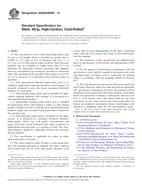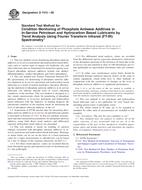1.1 This guide covers procedures and material for examining fires in oxygen systems for the purposes of identifying potential causes and preventing recurrence.
1.2 This guide is not comprehensive. The analysis of oxygen fire incidents is not a science, and definitive causes have not been established for some events.
1.3 The procedures and analyses in this guide have been found to be useful for interpreting fire events, for helping identify potential causes, and for excluding other potential causes. The inclusion or omission of any analytical strategy is not intended to suggest either applicability or inapplicability of that method in any actual incident study.
Note 1 – Although this guide has been found applicable for assisting qualified technical personnel to analyze incidents, each incident is unique and must be approached as a unique event. Therefore, the selection of specific tactics and the sequence of application of those tactics must be conscious decisions of those studying the event.
Note 2 – The incident may require the formation of a team to provide the necessary expertise and experience to conduct the study. The personnel analyzing an incident, or at least one member of the team, should know the process under study and the equipment installation.
1.4 Warning – During combustion, gases, vapors, aerosols, fumes, or combinations thereof, are evolved, which may be present and may be hazardous to people. Caution–Adequate precautions should be taken to protect those conducting a study.
1.5 This standard does not purport to address all of the safety concerns, if any, associated with its use. It is the responsibility of the user of this standard to establish appropriate safety and health practices and determine the applicability of regulatory limitations prior to use.
Product Details
- Published:
- 09/01/2008
- Number of Pages:
- 11
- File Size:
- 1 file , 130 KB
- Redline File Size:
- 2 files , 250 KB


